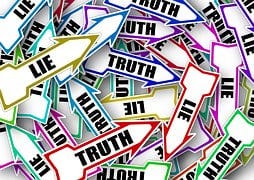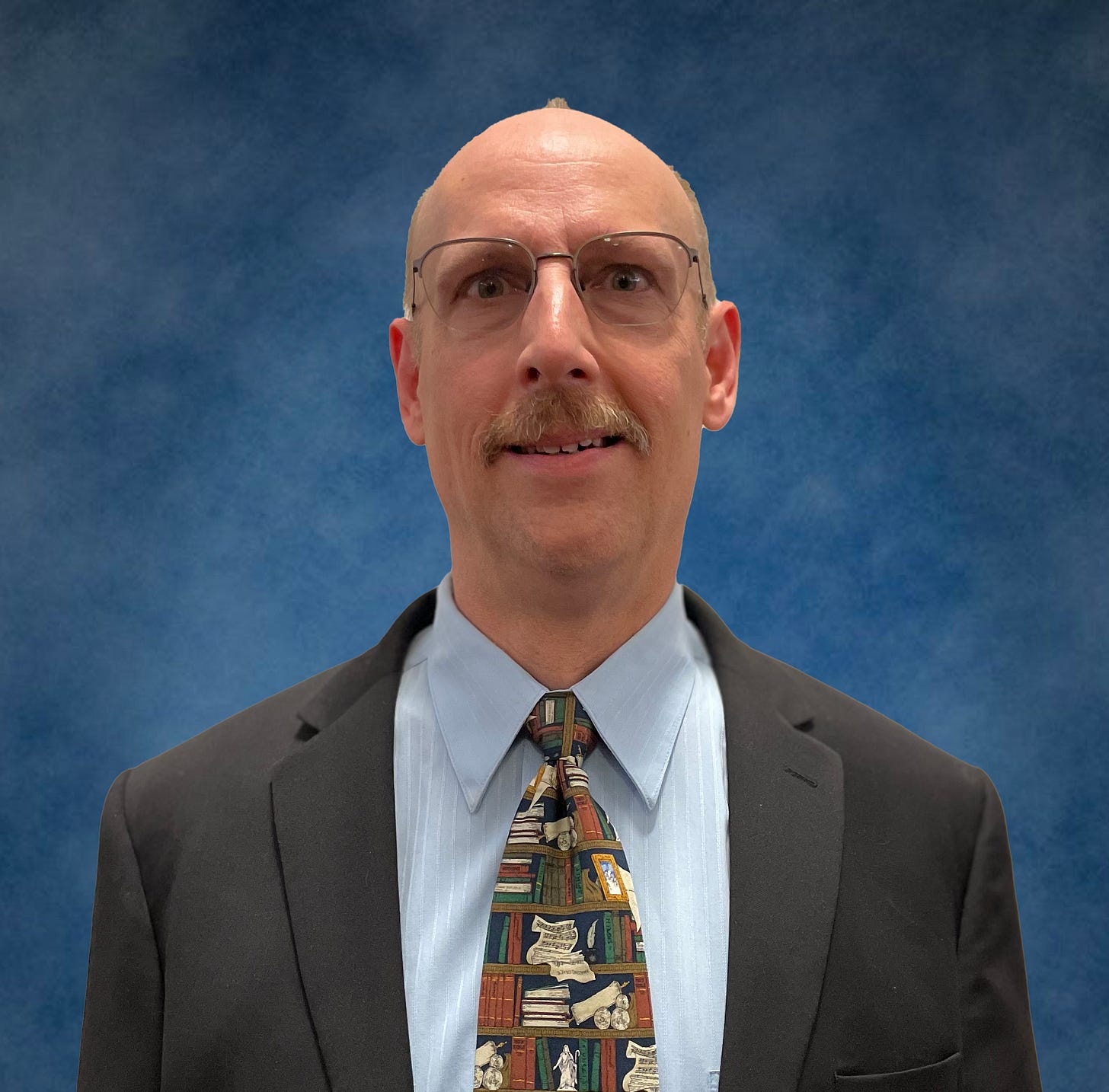What is going on in our world?
For many of us, particularly those from a traditional, orthodox Christian perspective the world today seems full of craziness. It is easy for us to lose sight of our grounding especially in a culture that has lost its grounding in history and any hope in objective truth. So, how do we makes sense of everything? How do we respond? Join me as I wrestle with these questions and more.
What is a Dys-organized Mind?
No, the name of this blog is not a typo. The prefix “dys” comes from Greek and can mean “bad,” “abnormal,” or “imperfect.” This is actually slightly different from the prefix “dis” which comes from Latin and can mean “a lack of.” This is why, when we say that something is disorganized, we mean that it lacks organization. By “Dys-organized,” I mean to say that our modern minds are, in fact, organized, but organized in an imperfect and abnormal way. In other words, there is just something askew in the way that we, as a society, think.
I would be far from the first in saying that it seems that there is just something incongruous about the way so many in our world think these days. From how scientific inquiry has been elevated to godlike status as “The Science” that must be believed and followed, to how for many rioting is not violence but silence about wrongs is violence, it seems to many that the world has gone topsy-turvy.
In some ways, the problem is that we have, as a society, completely lost an understanding of and use of logic. The most extreme forms come from those who declare that logic is really racist.
The truth is that logic itself has long gone out of style. Good luck finding someone who studied logic in middle or high school that wasn’t either homeschooled or attended one of the rare classical schools. I have often wondered how our political campaigns would change if at least half of the voters could easily spot an ad hominem attack and a straw man argument. One could say that we don’t think clearly anymore because we don’t know how to think logically.
However, there is an even deeper problem that has long gripped our world: the loss of perspective. If there is anything that is particularly hard for us to do, it is to see ourselves and our world clearly. Some have referred to this as “the Archimedean problem.” This goes back to the great Greek mathematician, engineer, and astronomer Archimedes, who was reputed to say: “Give me a lever long enough and a place to stand and I can move the world.” The inherent problem is that there is no place to stand. Archimedes was stuck in the world, and to move it he would have to stand outside of it. In much the same way, for us to see the world, including our place in it, we would have to find some place outside the world to stand, and that is impossible.
If this were not bad enough, we have to understand that we are caught up in our own little worlds. We all tend to think of the world as being like the area around us. We worry about what we see but don’t even think that maybe we are not seeing all that much of the world. While we are certainly aware that there are other people in the world who live very differently from us, it is hard for us to fully understand it, and we cannot truly see the world through their eyes.
Today the modern tech companies and social media are causing even greater divides. Every search and click you make on Google are tracked, and they work to give you more of what you want. Every post that you expand to read is noted by Facebook, and they filter more of the same to the top of your feed. The goal is to personalize the experience for you, but the unfortunate side effect is that you enter more and more into an echo chamber. Never before has there been a time when someone could have a bizarre view that is only shared with 50 other people scattered around the world and find themselves not only in touch with those 50 but see that as the majority opinion in their online searches. Soon, we start to think that whatever our view is, that is the only one that makes sense, and everyone who disagrees with us must, by definition, be some sort of crackpot.
It has reached the point that politics and power struggles are the primary motivators by far too many on both sides of the political spectrum (as if political views all fit on a neat continuum, but that is another matter). This causes us to view events through our own lenses, even when they might not square with the facts. Consider the pullout of Western troops and representatives from Afghanistan in 2021. It was argued by two Australian female academics that the Western aid workers were oppressors but the Taliban (that had been selling girls as sex slaves and even set a woman on fire when they were dissatisfied with the food they forced her to cook) are really the victims and better for women! I could be wrong, but I imagine that if these two professors were forced to cook for armed men who threatened to kill them if the food wasn’t good enough, they would probably change their tune about oppression.
In our world today, we have become totally and completely enamored and caught up with our own thoughts and world. Everything seems to be about us and what we have done. I think that much of the consternation our society has over COVID-19 is due to the fact that this has been something that we could not easily control. Even here, however, there seems to be a loss of perspective. How many have said or posted on Facebook something about COVID-19 being the deadliest disease in history? Have these people never heard of the Bubonic plague, cholera, or smallpox? For context, what was most likely smallpox ravaged through North America in the 16th century killing approximately 90% of the population (not of those infected, but everyone). In light of that, we should fall on our knees and thank God that we were dealing with something that at its most virulent had a mortality rate below 2% of those known to be infected.
More than anything else, we continue to fall for the first temptation “you will be like God, knowing good and evil.” (Genesis 3:5b ESV). We continue to try to make ourselves, our views, our world to be god and to believe that we know better what is true.
But it should be asked, why are things quite so crazy today? It is not like we are the first generation after the Fall. First, we need to be careful not to idealize other time periods; every era has its own problems. However, it seems that our thinking has become more and more detached from reality. After all, many now speak of a child having its sex “assigned at birth” as if the doctor just flipped a coin or imposed her ideas on the poor child rather than the doctor looking at the objective, physical evidence of the nature of the genitalia and drawing a logical conclusion regarding the sex that the child had prior to the doctor laying eyes on it.
This is why I am arguing that we have a Dys-organized mind. It is not that our minds are not at all organized. In fact, many of the key thinkers in our world are university educated, often with PhDs from prestigious institutions. It would be very wrong to say that their minds are disorganized, like a room that is complete mess. Rather, they are organized, but something is wrong with the organization. But it is also not just the “pointy-headed intellectuals” who think this way; to some extent or another it is all of us. It is this malformation of our contemporary mind that this blog seeks to analyze and hopefully present a few helpful suggestions along the way as to how we can better organize our minds and therefore our world.
About the author:
I am a conservative Lutheran pastor, who has served in the Lutheran Church—Missouri Synod and as a professor of Historical Theology at Concordia Lutheran Seminary in Lutheran Church-Canada. I am presently serving a dual parish in Perry County, Missouri. I have a Ph.D. in Historical Theology, with an emphasis in the Modern World as well as an interest in the history of Philosophy. In general, I keep asking why people think the way they think. I also agree with G.K. Chesterton’s advocating for tradition as a form of democracy where the dead get a vote.
I also describe myself as “an historian of the depressing” as my primary area of research has been looking at the church in Nazi Germany. This gives me a unique perspective, as I have studied how the Church has responded to, and all too much misunderstood, its own times during that dark era. This makes me wonder how well we are doing to understand our own times, as well as how we got here.
I am also available as a guest speaker, and have given presentations on The Church and Nazism, The Social Justice/Woke Movement, and trends in 20th and 21st Century Theology and Philosophy (which is more interesting than it may sound!)
Join the search for truth in this era of untruth
Please join me on this journey. Subscribe to my Substack (its Free!) to keep up to date with my posts. I hope to post once every week or two, as this is new, it will take me a little to get into a rhythm.
Join the discussion and the community as we seek to discern truth in the midst of this confusion and seek to give solid, biblically grounded answers. You are probably like me in having more questions than answers, but as we walk together in the light of the One who is the Way, the Truth, and the Life, we can slowly find our way to living authentically in this world and speaking the truth to those around us.
Thanks for reading The Dys-organized Mind ! Subscribe for free to receive new posts and support my work.
Why subscribe?
Subscribe to get full access to the newsletter and website. Never miss an update.
Stay up-to-date
You won’t have to worry about missing anything. Every new edition of the newsletter goes directly to your inbox.
Join the crew
Be part of a community of people who share your interests.
To find out more about the company that provides the tech for this newsletter, visit Substack.com.




